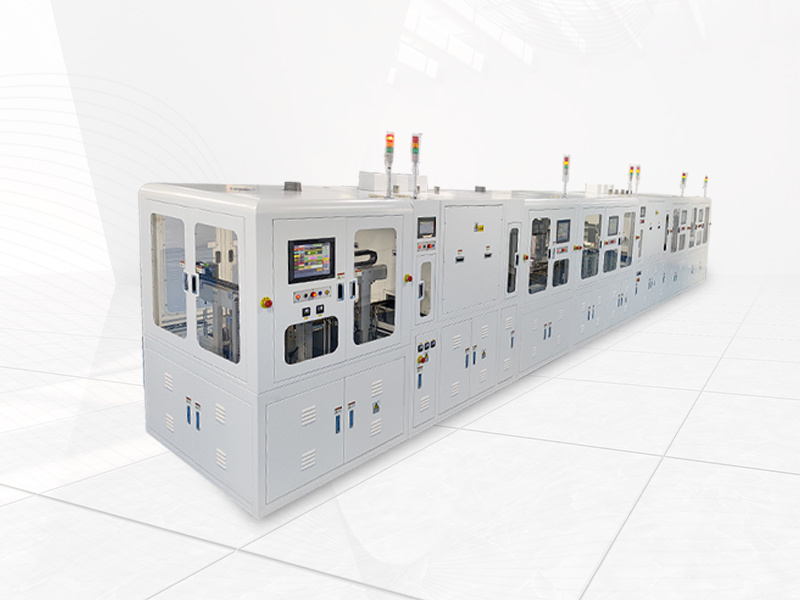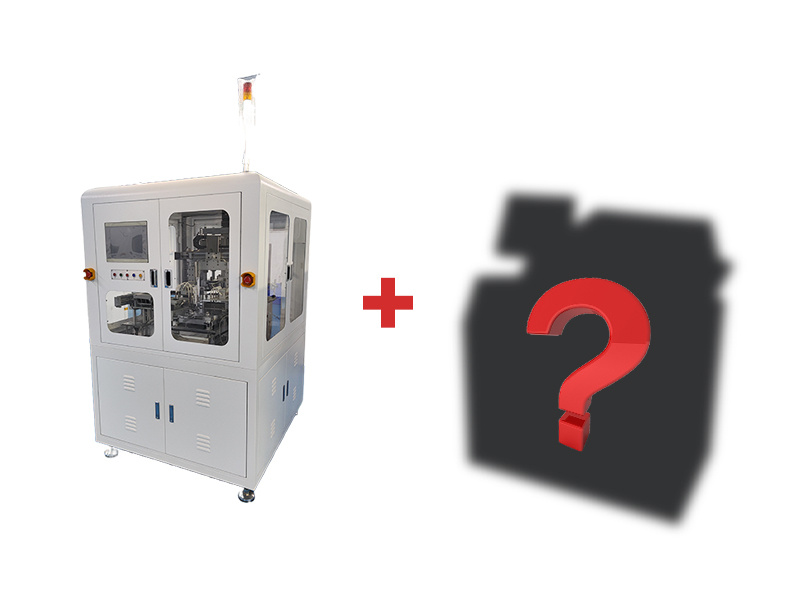Exploring Different Types of Dipping Machines for Various Applications
Release time:
May 23,2025
Exploring Different Types of Dipping Machines for Various Applications
Table of Contents
- 1. Introduction to Dipping Machines
- 2. Understanding Dipping Machines in Manufacturing
- 3. Types of Dipping Machines
- 3.1 Batch Dipping Machines
- 3.2 Continuous Dipping Machines
- 3.3 Automatic Dipping Machines
- 3.4 Manual Dipping Machines
- 4. Applications of Dipping Machines
- 4.1 Dipping Machines in the Food Industry
- 4.2 Dipping Machines in the Automotive Industry
- 4.3 Dipping Machines in the Electronics Industry
- 5. Advantages of Dipping Machines
- 6. Choosing the Right Dipping Machine for Your Needs
- 7. Maintenance and Care of Dipping Machines
- 8. Frequently Asked Questions
- 9. Conclusion
1. Introduction to Dipping Machines
Dipping machines are essential tools in various manufacturing processes, providing an efficient means of applying coatings, adhesives, or other materials to products. By immersing items in a solution, dipping machines ensure even coverage, which is crucial in maintaining product quality. With diverse models available, manufacturers can select machines tailored to specific applications, enhancing productivity and reducing waste.
2. Understanding Dipping Machines in Manufacturing
Dipping machines operate on a straightforward principle: they submerge products in a liquid medium for a predetermined duration. This process can be applied to a wide range of materials, including metals, plastics, and food items. The choice of dipping machine often depends on the production scale, the viscosity of the coating material, and the desired finish on the product.
3. Types of Dipping Machines
Different types of dipping machines cater to various industrial needs. Below are the primary categories available:
3.1 Batch Dipping Machines
Batch dipping machines are designed to process a specific quantity of items in a single cycle. These machines are ideal for small to medium production runs and offer flexibility in terms of the types of products that can be dipped. Operators can easily switch between materials and coating types, making batch machines suitable for a variety of applications.
3.2 Continuous Dipping Machines
In contrast, continuous dipping machines operate in a nonstop manner, allowing for high-volume production. These machines maintain a constant flow of product through the dipping process, which is advantageous for manufacturing environments requiring efficiency. Continuous machines are often equipped with automation features that minimize labor costs.
3.3 Automatic Dipping Machines
Automatic dipping machines streamline the dipping process by incorporating advanced technology to control the immersion depth, duration, and withdrawal speed of products. These machines enhance precision and consistency, reducing human error while increasing the overall quality of the finished product. Automatic systems are particularly useful in industries where precision is paramount.
3.4 Manual Dipping Machines
Manual dipping machines rely on human operators to submerge products into the dipping solution. While less common in large-scale operations, these machines are effective for smaller businesses or artisanal manufacturers that require a hands-on approach. Manual machines allow for greater control over the dipping process, though they may lead to variations in product quality.
4. Applications of Dipping Machines
Dipping machines are utilized across various industries, each with its unique requirements and specifications. Understanding how these machines fit into different sectors can help businesses make informed decisions.
4.1 Dipping Machines in the Food Industry
In the food industry, dipping machines are often used for coating products such as snacks, vegetables, and meat. These machines can apply batters, breading, or sauces quickly and uniformly, ensuring that each product meets safety and quality standards. With the increasing demand for convenience foods, the role of dipping machines in food processing continues to grow.
4.2 Dipping Machines in the Automotive Industry
The automotive sector employs dipping machines for various purposes, including the application of protective coatings and paints. Dipping ensures a uniform coverage that protects components from corrosion and wear. By utilizing advanced dipping technologies, manufacturers can enhance the durability and longevity of their products, which is essential in a highly competitive market.
4.3 Dipping Machines in the Electronics Industry
In electronics, dipping machines play a critical role in the manufacturing of circuit boards and components. These machines apply coatings that protect sensitive electronic parts from moisture and corrosion, ensuring they function optimally over time. As technology advances, so too does the complexity of dipping machines used in the electronics sector.
5. Advantages of Dipping Machines
Employing dipping machines offers numerous benefits that can positively impact production efficiency and product quality.
- **Consistent Application**: Dipping machines provide uniform coverage, reducing the risk of defects that can occur with manual application methods.
- **Increased Efficiency**: Automation and continuous processes enable faster production rates, ultimately leading to higher output.
- **Versatility**: Different dipping machines can accommodate various materials and coating types, making them suitable for diverse applications.
- **Reduced Waste**: Dipping minimizes overspray and excess material usage, contributing to cost savings and environmentally friendly production practices.
6. Choosing the Right Dipping Machine for Your Needs
Selecting the appropriate dipping machine requires careful consideration of several factors, including:
- **Production Volume**: Assess your expected production rates to determine whether a batch or continuous machine is ideal.
- **Type of Coating**: Consider the viscosity and properties of the coating material to ensure compatibility with the chosen machine.
- **Application Specifics**: Evaluate the specific requirements of your industry to identify any unique features your dipping machine may need.
- **Budget Constraints**: Analyze the costs associated with both initial purchase and ongoing maintenance to find a machine that fits your financial parameters.
7. Maintenance and Care of Dipping Machines
Proper maintenance of dipping machines is crucial for ensuring longevity and optimal performance. Regular cleaning, inspection, and calibration can prevent issues that could disrupt production. Operators should adhere to the manufacturer's guidelines for maintenance schedules, which may include:
- **Routine Cleaning**: Ensure that all parts of the machine are free from residue to maintain product quality.
- **Lubrication**: Apply appropriate lubricants to moving parts to reduce friction and wear.
- **Calibration**: Periodically check and calibrate the machine to confirm that it operates within specified tolerances.
8. Frequently Asked Questions
What factors should I consider when purchasing a dipping machine?
When purchasing a dipping machine, consider factors such as production volume, type of coating, application specifics, and budget constraints.
How do I maintain my dipping machine?
Regular cleaning, lubrication, and calibration according to the manufacturer's guidelines are essential for maintaining your dipping machine.
Can dipping machines be customized for specific applications?
Yes, many manufacturers offer customizable options to tailor dipping machines to the specific needs of different industries or applications.
Are automatic dipping machines worth the investment?
Automatic dipping machines can enhance precision and efficiency, making them a worthwhile investment for companies looking to improve production quality and reduce labor costs.
What industries benefit most from dipping machines?
Industries such as food processing, automotive manufacturing, and electronics significantly benefit from the use of dipping machines due to their efficiency and ability to maintain product quality.
9. Conclusion
Dipping machines serve as invaluable assets across various industries, providing efficient and reliable solutions for coating products. Understanding the different types of dipping machines, their applications, and benefits allows manufacturers to make informed decisions that enhance productivity. By investing in the right dipping machine, businesses can streamline their processes, improve product quality, and ultimately gain a competitive edge in their respective markets.









